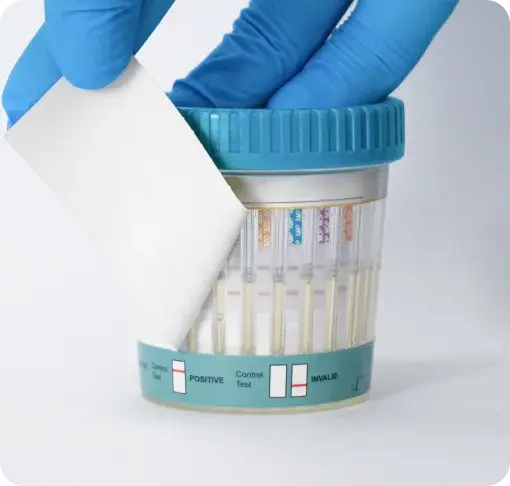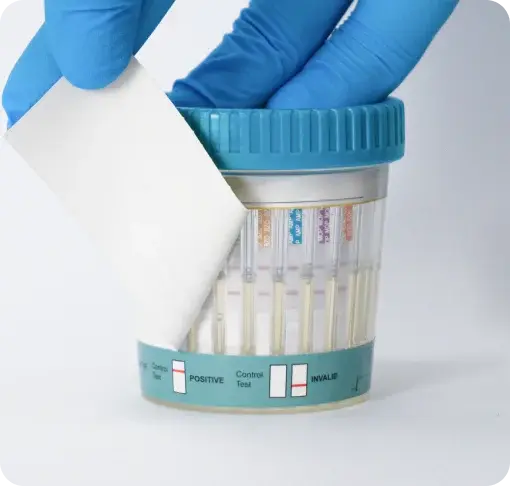Imporving Efficacy and Reducing Drug Dependence
The AttoGroup (AttoSure and AttoDiagnostics) had the pleasure of attending the 11th Health in Justice Summit at the Royal College of General Practitioners over the 17th and 18th of October, 2024.
Amongst the myriad of compelling talks covering issues including peer-to-peer training of prison inmates in BBV testing, cancer detection and treatment in prisons, and barriers to delivering medical care, two themes stood out as relevant to AttoDiagnostics:
-
Effectively treating mental health conditions in prisons
-
Tackling excessive prescribing of medicines that can lead to, or support, addictive patterns
These themes are of particular interest to AttoDiagnostics, as we provide pharmacogenomic testing, or PGx. PGx testing enables personalised prescribing or personalised medicine, where each patient is treated as an individual.
How Does Pharmacogenomic Testing Work?
Pharmacogenomic (PGx) testing analyses a person's genetic makeup to understand how they might respond to specific medications. By examining genetic variations that affect drug metabolism, efficacy, and safety, PGx testing can identify which medications are most likely to work effectively for an individual and which ones may pose a higher risk of side effects or adverse drug reactions. Adverse drug reactions cost the NHS £2bn a year* with antipsychotics accounting for the majority of ADRs at 60.6%**. On the flip side, a meta-analysis published in The Journal of Clinical Psychiatry found that patients whose treatment was guided by pharmacogenomic testing had up to 70% improvement*** with PGx-guided treatment compared to the normal approach.
Using the techniques developed by AttoDiagnostics, we can analyse 120 genetic markers, covering over 115 medications and more than 25 conditions across areas such as mental health, genitourinary medicine (GUM), cardiovascular health, oncology, rheumatology, autoimmune disorders, and gastroenterology.
For each medication, our test will indicate whether the patient can use the drug as prescribed, or if their initial dose should be lowered or increased. In some instances, a person may lack the genetic pathways to metabolise a drug effectively. In this case, a different medication would need to be prescribed. In other scenarios, a person may metabolise a drug too quickly or too slowly, potentially leading to suboptimal therapeutic effects or a toxic build-up, making the drug unsafe to use.
While avoiding side effects is important, the greater goal is to achieve a more effective treatment outcome from the start, leading to efficiencies, cost savings, and better overall patient health.
Pharmacogenomic Testing for Mental Health Conditions in the Criminal Justice System
While at the conference event stand, we engaged in a conversation with Dr. Matthew Tovey, a Consultant Forensic Psychiatrist at Midlands Partnership NHS Foundation Trust.
Dr. Tovey expressed interest in the application of PGx for neuroleptics, such as Risperidone, Olanzapine, and Quetiapine. In his practice, he works with a diverse group of individuals, ranging from young people who may never have received a formal medical diagnosis to those serving life sentences. Among these individuals, a significant portion will eventually re-enter society.
It stands to reason that addressing medical conditions promptly—whether that involves treating depression, ADHD, or schizophrenia—could not only improve the well-being of the individuals and the prison environment but also help reduce the likelihood of reoffending.
Pharmacogenomic Testing to Reduce Medication Dependence in the Criminal Justice System
Another talk at the event tackled the subject of "deprescribing medicine." In his talk, Dr. Marcus Bicknell mainly discussed the idea of "taking the foot off the accelerator and applying the brakes" when it comes to prescribing medications.
He broadly addressed the use of opioid-based pain medications. To this author, it seems likely that prisoners may rely on these drugs not only for pain relief but also to cope with the stress of the prison environment. It's also reasonable to assume that certain medications could be traded, or even, stolen within the prison walls.
Dr. Bicknell highlighted drugs such as pregabalin and tramadol as common examples but also discussed selective serotonin reuptake inhibitors (SSRIs), suggesting that approximately 1 in 8 people have taken an SSRI and that discontinuing these medications can be challenging due to withdrawal effects.
The role of PGx testing in this context is similar to that described for mental health: treating each individual with the most appropriate medication or dose for their specific genetic profile.
However, when addressing drug dependence, addiction, and misuse, ensuring that patients receive the correct dosage based on their genetic makeup could reduce the risk of developing addiction. By personalising treatment, PGx testing may help prevent the exposure to medication levels that could accelerate or worsen dependence.
As an aside, returning to AttoSure, Dr. Bicknell advocated for urine drug testing before prescribing a medication. Point-of-care urine tests can help determine if a person is taking a prescribed medication, taking medications they shouldn’t be, or indeed, using illicit drugs. AttoSure provide of range of urine cups and oral fluid tests that screen for substances including Amphetamines, Barbiturates, Benzodiazepines, Buprenorphine, Cocaine, EDDP (Methadone Metabolite), Fentanyl, Ketamine, LSD, Methamphetamines, Morphine (Opiates), Oxycodone, Pregabalin, Propoxyphene, K2/Spice, THC (Cannabis), Tramadol and 6MAM (Heroin Specific).
AttoDiagnostics, First to Market With Comprehensive and Affordable PGx Testing the UK
Pharmacogenetic testing gained popularity during the HIV epidemic when it was observed that certain individuals responded differently to the same medications. More recently, during the COVID-19 pandemic, AttoDiagnostics became interested in a similar phenomenon regarding COVID treatments, which led to the development of our PGx offering.
While the science behind pharmacogenetics has been established for some time, the ability to deliver a comprehensive panel covering a wide range of medications is a more recent advancement. AttoDiagnostics can analyse 120 genetic markers in a single run, providing a superior service at around half the cost of our competitors.
For example, the AttoDiagnostics Mental Health PGx test is available to consumers for £299.
We aim to popularise the concept of PGx across public health, criminal justice, and private healthcare sectors, enabling more people to find the right medication for their genetic profile in less time.
If you are a medical practitioner and would likemore information on PGx testing, you can request a call back here.
References
* Osanlou R, Walker L, Hughes DA, et alAdverse drug reactions, multimorbidity and polypharmacy: a prospective analysis of 1 month of medical admissionsBMJ Open 2022;12:e055551. doi: 10.1136/bmjopen-2021-055551 https://cheme.bangor.ac.uk/news/costs-of-adverse-drug-reactions-17622
** Ambwani S, Dutta S, Mishra G, Lal H, Singh S, Charan J. Adverse Drug Reactions Associated With Drugs Prescribed in Psychiatry: A Retrospective Descriptive Analysis in a Tertiary Care Hospital. Cureus. 2021 Nov 12;13(11):e19493. doi: 10.7759/cureus.19493. PMID: 34912634; PMCID: PMC8664397. Adverse Drug Reactions Associated With Drugs Prescribed in Psychiatry: A Retrospective Descriptive Analysis in a Tertiary Care Hospital - PMC (nih.gov)
*** Fabbri, C., Zohar, J., Serretti, A. (2018). Pharmacogenetic tests to guide drug treatment in depression: Comparison of the available testing kits and clinical trials. The Journal of Clinical Psychiatry, 79(5), 123-130. doi:10.4088/JCP.16r10785 https://pubmed.ncbi.nlm.nih.gov/29777729/
Talk to Us
